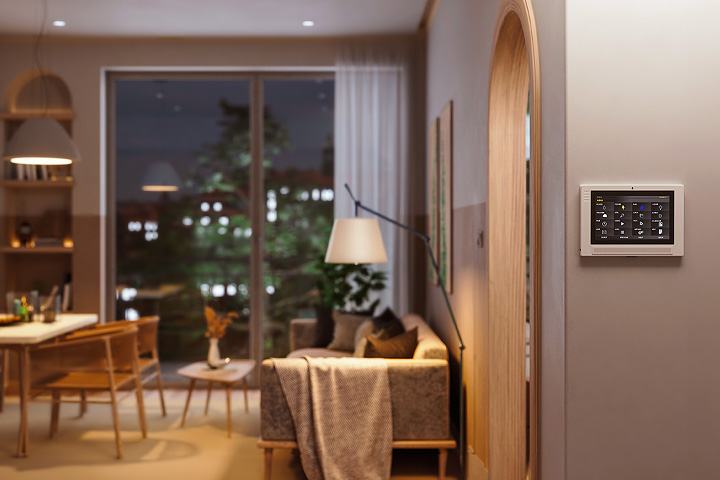What is Alarm Monitoring & How Does it Work?
 When choosing an alarm system for home protection, understanding the benefits of monitoring is crucial. Alarm monitoring allows for communication between your home security system and your security provider’s Central Station. The following explores what you need to know about alarm monitoring, how it works, and why it’s worth the investment:
When choosing an alarm system for home protection, understanding the benefits of monitoring is crucial. Alarm monitoring allows for communication between your home security system and your security provider’s Central Station. The following explores what you need to know about alarm monitoring, how it works, and why it’s worth the investment:
Alarm monitoring explained
A monitored alarm is under surveillance 24/7 by your system provider. Your alarm system and the company’s Central Station are in constant communication. The system will automatically notify Central Station when your home alarm is triggered. Then a Monitoring Agent will contact emergency services to assess the situation in person. You can focus on getting yourself and your family to safety while your alarm provider takes care of the rest.
Without alarm monitoring, it is up to you to call emergency services if an intruder, fire, or other emergency situation triggers your alarm. Self-monitored alarms may cost less, but they require you to manage your own alarm response.
Benefits of alarm monitoring
Knowing that your alarm system is under 24/7 surveillance by your provider is one of the greatest benefits of investing in alarm monitoring. Here are a few more reasons why alarm monitoring is the way to go:
- Quick response times: Break-ins usually occur during the day when occupants are at work or school. Because you aren’t always at home when your alarm is triggered, alarm monitoring is a wise choice. Quick response time can make all the difference in minimizing damage.
- Real-time notifications: Nothing will give you peace of mind more than knowing that someone will receive a real-time notification in the event of an intruder, fire, or other emergency at your home. Real-time notifications mean emergency services will be immediately contacted and dispatched to your home.
- Thorough emergency detection: Alarm monitoring companies can assist with various emergencies. Whether your home encounters a fire, break-in, medical emergency, gas leak, or carbon monoxide leak, they are equipped to handle the situation.
Weighing the options
According to a 2013 study, 83% of burglars look for an alarm before attempting a break-in, says SafeHome.org. 60% of those would move on to a new target if they saw signs of an alarm. For the remainder who still attempt the burglary, alarm monitoring can make a difference in their success.
A burglar will trigger your alarm, and your provider will be notified immediately. This will send authorities to your home to stop unwanted activities in progress. An alarm is a good first step, but a monitored alarm is one step beyond.
Delaying response times means burglars have more time to riffle through your home and possibly come into contact with a family member. The quicker authorities can arrive on the scene, the less damage, injury, and monetary loss you will suffer.
If you’ve wondered whether a monitored alarm is worth the investment, consider the benefits and the peace of mind it will give you.
NEXT STEPS:
- Contact us today to learn more about security and surveillance.
- Learn more about what home or business security means to us.
- Subscribe to our blog to stay informed about the latest security news and insight.

















